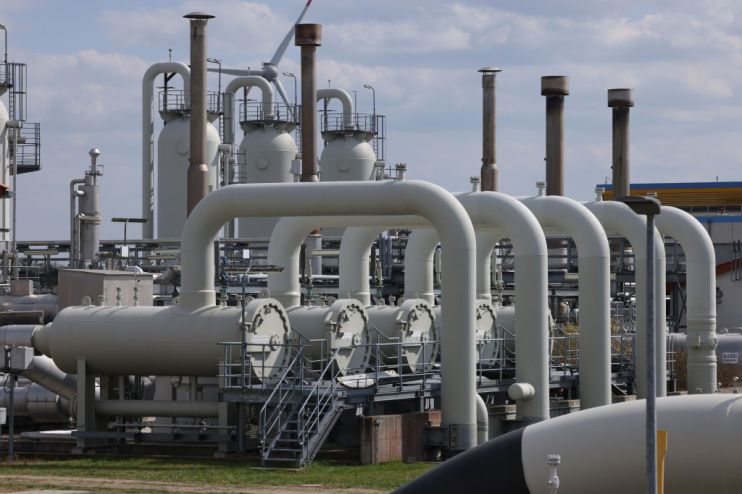IEA urges Europe to secure supplies amid warnings Russia could cut off gas flows

The head of the International Energy Agency (IEA) has urged Europe to secure its own energy supplies this winter.
It has warned that Russia may cut off gas to the continent entirely as it seeks to bolster its political leverage following the invasion of Ukraine and raft of Western sanctions.
“I wouldn’t rule out Russia continuing to find different issues here and there and continuing to find excuses to further reduce gas deliveries to Europe and maybe even cut it off completely,” IEA executive director Fatih Birol told news agency Reuters.
This follows Russia imposing rouble requirements on gas purchases from “unfriendly” overseas buyers, such as European energy companies – with Kremlin-backed Gazprom cutting off supplies into Finland, Bulgaria, Poland, Netherlands and Denmark after their industries failed to comply.
Gas flows via the Nord Stream 1 pipeline between Germany and Russia also dropped sixty per cent last week – putting more pressure on the continent.
The growing hostility from Russia, in response to European sanctions targeting coal and oil supplies has raised the prospect of President Vladimir Putin completely halting flows into Europe.
This is not the IEA’s base case for energy supplies this winter, but the Paris-based agency has called on Europe to double down on efficiency measures and renewables, including nuclear power in its annual report on investment – which was published today.
It argued Europe must react to the crisis “with a determined acceleration of investment in efficiency, renewables and other clean technologies,” the Paris-based watchdog argued in its annual report on investment.
The report revealed $2.4tn is set to be invested in the energy sector this year – including record spending on renewables.
However, this fell short of plugging a supply gap and tackling climate change.
“This kind of investment is rising, but we need a much faster increase to ease the pressure on consumers from high fossil fuel prices, make our energy systems more secure, and get the world on track to reach our climate goals,” warned Birol.
West turns to coal as winter pressures loom
The EU has been racing to top up its energy capacity with imports of liquefied natural gas from overseas buyers such as the US, while also pursuing gas deals in markets across the world including Azerbaijan and Qatar.
Gas prices have been elevated for nearly a year, with rebounding pandemic demand and capacity issues driving up prices – conditions which have been exacerbated by Russia’s invasion of Ukraine.
Prices spiked to record levels in March after the UK and US first targeted Russian energy supplies with sanctions, and remain historically high ahead of this winter.
The EU has sanctioned both Russian oil and coal in recent weeks following the eruption of conflict in Ukraine, but has held off on banning gas imports – with only Lithuania unilaterally bringing in an embargo.
The bloc is dependent on Russia for around 40 per cent of its natural gas imports – and has spent €30.4bn on Russian gas supplies since the invasion of Ukraine.
It has called on member states to top up storage levels, with targets of 80 per cent capacity in October and 90 per cent capacity in November.
Capacity is currently sitting at 55 per cent across the bloc, according to iGas.
The UK has sought to ensure its own supply security in recent days with its largest energy firm Centrica securing a massive gas deal with Norway’s Equinor, that could provide enough energy to power 4.5m more homes over the next three years.
Centrica has also lodged for approval to re-open the UK’s largest rough gas storage site earlier this month, which was closed in 2018 – prior to the current crisis.
The government has also convinced EDF to extend the life of the West Burton A Power Station over the winter.
It is not the only country to turn towards coal – with Germany also set to ramp up coal supplies in the coming months.
Earlier this week, Europe’s largest economy passed emergency laws to reopen mothballed coal plants for electricity generation, and auction gas supplies to industry to incentivise businesses to curb consumption.